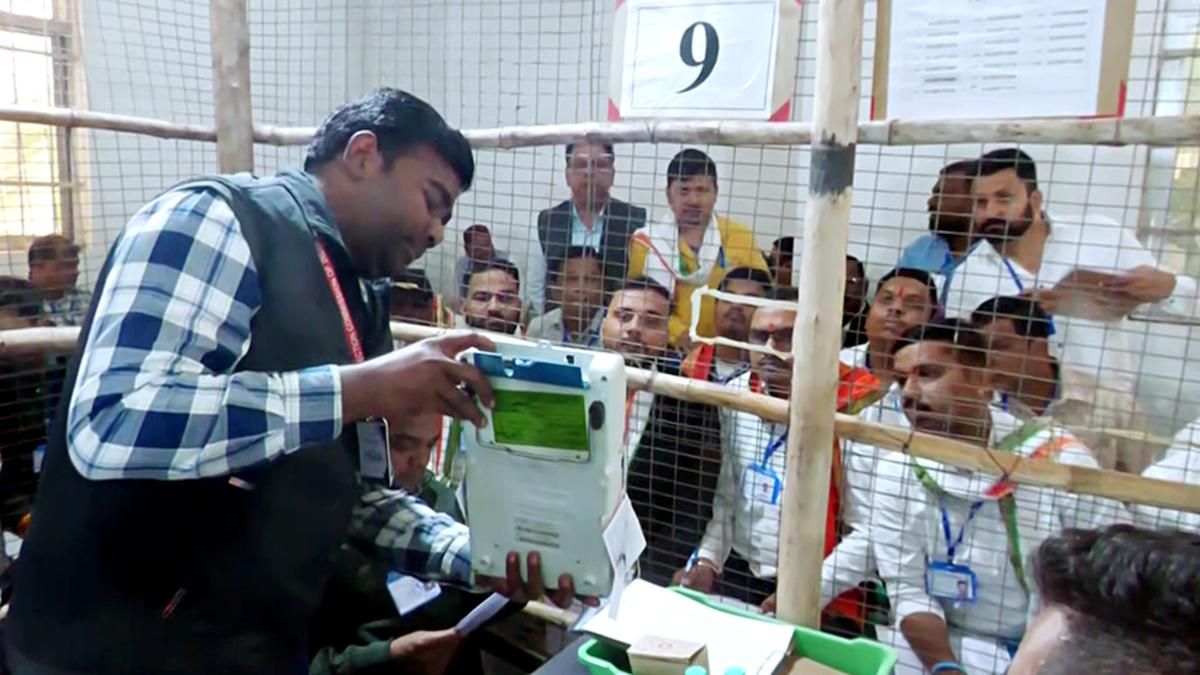
BMC issues statement refusing the allegations of unfair election by MNS candidate
The Hindu
BMC refutes MNS candidate's allegations of unfair election practices in Mumbai Assembly election with detailed explanations.
Mumbai’s civic body, the Brihanmumbai Municipal Corporation [BMC] issued an official statement on Tuesday (November 26, 2024) over the allegations of unfair election and counting of votes made by an Maharashtra Navnirman Sena (MNS) candidate from Dahisar.
Rajesh Gangaram Yerunkar on Monday, made various allegations on social media in connection with authenticity and transparency in the State Assembly election held on November 20, 2024, as well as on the counting day on November 23, 2024.
The MNS candidate, Mr. Yerunkar made allegations on the electronic voting machines [EVMs] used in the elections and claimed that on the day of counting, when the counting agents were given the EVMs, it had only one seal, whereas it should have had three seals. He further claimed, “When I asked about the discrepancy, the election officer on duty responded saying that it was possible for a machine to have only one seal. Some EVMs showed 99% charge whereas, others showed 70% or 60% charge after two days, which is impossible. It is also surprising that only two votes were recorded from our area whereas we have four eligible voters from our house itself. Are you telling me that my own family members did not vote for me? How is this possible?”
Responding to his allegations, the BMC released a statement on X [formerly Twitter] and said, “There is no truth in the allegations of the voting figures, the number of the plant in 17C, EVM plants not matching; 99% battery of the control unit at the time of counting; carrying case seal; and the complaint that the candidate got only two votes in comparison with the number of families in the candidate, etc., there is no truth.”
Form 17C is a comprehensive record of information that is provided to polling agents and it includes number of voters assigned to each polling station, total number of voters registered in an area, number of voters who did not vote, number of voters denied to vote, total number of voters totalled by EVM, identification number of the EVMs and the names of candidates and total number of votes each one received. In case of a dispute, Form 17C can be used in a case of a legal dispute about the poll results.
The BMC statement added, “The total voting figures and machine numbers in 17C and EVM plant are exactly matching. A copy of 17C has been given to all the candidates’ representatives on the polling day. No written complaint has been received by the Returning Officer’s office, Dahisar Assembly Constituency on the polling day or the counting day.”
Refuting the allegations on EVM battery status, the BMC officials said, “In FAQ [frequently asked questions] No. 34 published on the website of the Election Commission of India, detailed information regarding the 99 percent battery seen in the control unit has been published. Q34 of the FAQ, Why EVM Power pack status is shown as 99% in some CUs even after full day use in poll? The answer says: The EVM power pack is designed to support 4 BUs along with 1 CU with 2000 votes being cast. The voltage falls very gradually when the capacity is high but falls rapidly when the battery capacity reduces below a threshold. In case of lighter current load like with a single BU and less than 1000 votes being cast, the battery current drain is low and output voltage may not drop below 7.4V and can thus so display of 99% capacity.”











